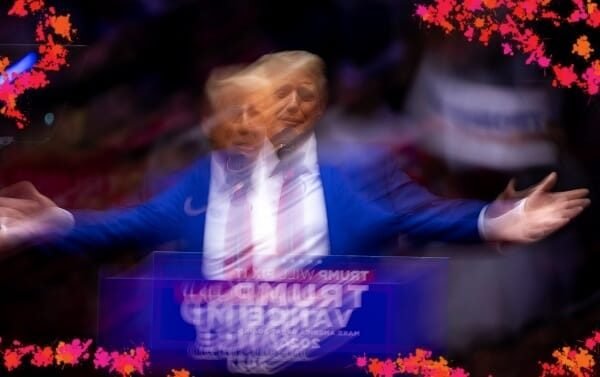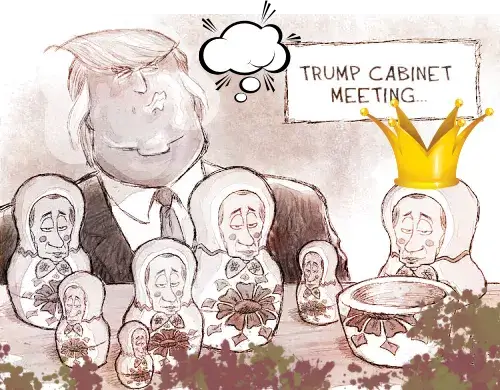Trump’s Remarks. Exploring the implications of President Donald Trump’s disparaging comments about Ukrainian President Volodymyr Zelensky. WoW, this analysis delves into the complexities of U.S.-Ukraine relations, the dynamics of international diplomacy, and the broader geopolitical landscape.
The writing highlights Zelensky’s response, concerns over Russian disinformation, and the potential impact on American foreign policy. It also examines theories surrounding Trump’s allegiances and the need for clear communication to ensure stable diplomatic channels moving forward.
Trump’s Remarks Disparaging Comments on Zelensky.
President Donald Trump has made a series of controversial remarks regarding Ukrainian President Volodymyr Zelensky. These comments have ignited discussions surrounding political allegiance and international relations.
Trump’s characterization of Zelensky as a “dictator” and a “moderately successful comedian” reflects a broader narrative that Trump has cultivated during his political career.
Often aimed at delegitimizing opponents or foreign leaders he perceives as untrustworthy.
The context in which Trump’s remarks were made is crucial for understanding their implications.
Following Zelensky’s election in 2019, he was often viewed as a reformist leader, coming into power with promises to tackle corruption in Ukraine and strengthen ties with the West.
However, Trump’s comments seemed to undermine this perception, suggesting an alternative view that casts doubt on Zelensky’s leadership capabilities.
By labeling Zelensky in such a disparaging manner, Trump not only questioned the legitimacy of Ukraine’s democratic processes but also risked straining the vital relationship between the United States and Ukraine… and Europe Union
One big moment, relationship that has been historically important for both nations.
Want to be on Trump’s team, demonstrate dogged submission!
Meanwhile, Trump, following Putin’s best examples, declares that Ukraine should never have started the war (you should’ve never started it), thus echoing Putin’s narrative that Ukraine is actually to blame for everything.
When asked why Ukraine is not being invited to the negotiating table, Trump replies: Ukraine had three years [during which it could have reached an agreement with Russia], which it did not use. Zelensky’s trust rating is said to be 4% (in fact, 52% in December 2024) and in that vein.
These openly pro-Putin statements by Trump caused a storm in the world political environment.
Even US Senator Roger Wicker, a Republican from Mississippi, in a short interview with CNN journalist Manu Raju, when asked whether he could be trusted in negotiations with Putin, answered briefly and clearly:
“No. Putin is a war criminal who should be in prison for the rest of his life. Maybe even sentenced to death.”
Wicker’s openly anti-Putin position, which is completely dissonant with Trump’s position, gives us hope that not everyone in the US Republican Party has succumbed to Trump’s demands for absolute loyalty, which are completely simple.
If you do not loudly express (tacit consent is not enough) admiration for Trump’s genius and great place in world history, then you have no place on Trump’s team.
Then you are an enemy.
It is not for nothing that Marco Rubio, after the talks with Lavrov in the capital of Saudi Arabia, Riyadh, not only talked a lot at the press conference about the results of the talks (there were actually none), but also poured out praise songs about Trump’s enormous role in politics and his amazing abilities.
As if he were not the foreign minister of the leading country of the “free world”, but of Turkmenistan, whose main task is to praise the next Turkmenbashi to the world.
Even Lavrov does not try to please his boss publicly as much as Rubio did. Fact!
Analyzing Trump’s motivations reveals a layered strategy. His derogatory remarks may be seen as part of his broader efforts to manipulate foreign policy narratives, aligning with his populist messaging that favors an “America First” approach.
Such terminology and rhetoric could resonate with his base, framing Zelensky’s leadership as ineffective while portraying Trump himself as a more decisive leader.
Consequently, this approach not only affects public perception of Zelensky but also complicates the complex dynamics of American-Ukrainian relations, as it raises questions about U.S. support for Ukraine during times of big WAR.
The choice of language in political discourse often has far-reaching effects, potentially impacting international alliances and the political landscape for years to come.
Zelensky’s Response and Perception of Trump
In the wake of Donald Trump’s critical remarks regarding Ukrainian President Volodymyr Zelensky, the latter has vocally expressed his stance on the matter.
Zelensky has asserted that Trump is deeply entrenched in a ‘Russian disinformation space,’ a characterization that underscores not only his discontent with Trump’s comments but also his broader sentiment concerning the manipulation of information by foreign actors.
This assertion is pivotal, as it reflects Zelensky’s view of the geopolitical landscape in which Ukraine must navigate its relations with both the United States and Russia, particularly in light of ongoing tensions in Eastern Europe.
Zelensky’s rhetoric serves as a significant marker of how Ukrainian leaders perceive American political discourse, especially when it diverges from support for Ukraine amidst its war t with Russia.
Theories Surrounding Trump’s Allegiances.
The discourse regarding Donald Trump’s allegiances has become increasingly complex and multifaceted, primarily due to his controversial statements and interactions with various foreign leaders.
A prevailing theory posits that Trump may have been influenced by or even acting on behalf of Russian interests.
Critics argue that such behavior raises questions about his loyalty to the United States and whether it could indicate a form of allegiance directed towards Russia.
The ramifications of Donald Trump’s remarks concerning Ukrainian President Volodymyr Zelensky are multifaceted and carry significant weight in shaping U.S. foreign policy, particularly in relation to Ukraine and Russia.
The geopolitical landscape.
As the geopolitical landscape remains tense, rhetoric from influential figures can have a profound impact on international alliances and perceptions.
Trump’s statements may create uncertainties regarding the U.S. commitment to supporting Ukraine amidst its ongoing war with Russia, potentially leading to hesitance in providing military or financial assistance.
Such a shift could embolden adversaries, undermining Ukraine’s defense capabilities and affecting regional stability. Furthermore, the remarks may resonate within the broader context of U.S. relations with NATO allies.
If Trump’s rhetoric is interpreted as diminishing American support for Ukraine, European nations may recalibrate their own strategies toward USA. Similarly, Russia could interpret these comments as an opportunity to leverage its position, mired in the ongoing hostilities, and attempt to sway the balance of power in its favor.
The potential for heightened tensions or miscalculations is a pressing concern for global diplomacy.
In conclusion, the implications of Trump’s comments extend beyond mere political discourse, influencing key decisions that will shape the future of international relations and conflict resolution.
Have a great Day!





While the administration of Donald Trump has entered initial talks with Russia on the possibility of ending the war in Ukraine…
US and close allied intelligence agencies believe that Kremlin leader Vladimir Putin still wants to gain control of all of Ukraine, according to four Western intelligence officials and two US congressional officials, NBC News reports.
US President Donald Trump has brought Putin out of isolation, blamed Ukraine’s Volodymyr Zelensky for the war and indicated he wants to reach a deal with Moscow over Kiev’s head. Yesterday, he went further, calling Zelensky a “dictator”.
Trump is willing to meet with Vladimir Putin, even if the Russian leader hadn’t yet agreed to also sit down with Ukrainian President Volodymyr Zelenskiy.
The US president said he was “very disappointed” with Putin’s behavior and left open the possibility of additional penalties over the war in Ukraine as soon as today.